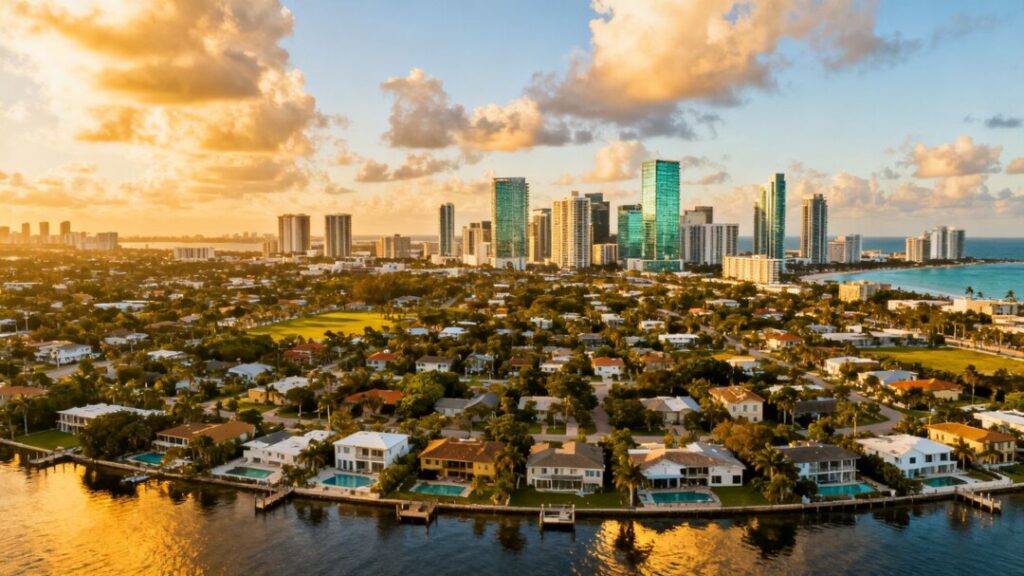Miami-Dade County’s real estate future is clouded by two major trends: skyrocketing insurance premiums and a heated debate about the fate of property taxes. With affordability and essential services at stake, residents and policymakers are facing tough choices that could reshape the area’s economic landscape.
Key Takeaways
- Florida homeowners are facing massive increases in insurance rates, with Miami-Dade among the most expensive counties.
- As property value growth slows, local leaders are urging governments to cut or even consider abolishing property taxes.
- Major budget items like schools and public safety depend on property tax revenue, raising tough questions about what a tax overhaul could mean.
Insurance Premiums Reach New Highs
Homeowners across Miami-Dade have witnessed home insurance premiums rise over 40% in just five years. In 2023, single-family homes in Miami-Dade saw average annual insurance costs topping $5,391, second only to the Keys. While condo owners fare somewhat better, premiums have still spiked due to hurricanes, rising property values, and evolving state regulations. Efforts at reform have yet to stop the upward march of costs, adding strain on both new buyers and long-time homeowners.
The Push To Lower or End Property Taxes
With the real estate market showing signs of stabilizing—property value growth slowed to 8.5% in 2025—some officials want property tax relief. The county’s property appraiser says higher bills are no longer justified and has urged local governments to lower taxes. For residents, this could mean welcome relief. For example, a $300,000 home in Miami-Dade currently faces about $5,278 in annual property taxes.
Debate Over Property Tax Elimination Intensifies
The discussion has escalated, with local and state politicians floating the idea of eliminating property taxes on primary residences. Supporters argue that abolishing these taxes would protect homeowners, particularly seniors, veterans, and middle-class families, from losing their homes. Critics warn of significant consequences. Property taxes supply up to three-quarters of some municipal budgets and fund everything from police and fire services to school operations.
Where The Money Goes: Essential Services At Risk
About 70% of Miami-Dade’s $7 billion in countywide property tax revenue supports two critical sectors: education and public safety. Local schools depend on these funds for nearly half their budgets, while fire, police, and corrections consume a major share of the rest. Any reduction in property taxes without a clear replacement could mean layoffs, reduced services, or hikes in other taxes, such as sales taxes that hit low-income residents hardest.
A Pivotal Crossroads Ahead
As insurance premiums rise and property tax debates heat up, Miami-Dade faces a complex balancing act. Decisions made in the coming months could reshape the burden on homeowners and change how vital public services are funded, leaving the community watching closely for what lies ahead.
Sources
- Florida’s insurance crisis: Premiums up 43% since 2018, Miami-Dade ranks second highest, IslanderNews.com.
- Miami-Dade property appraiser urges local governments to lower taxes as market stabilizes, CBS News.
- Florida property tax debate: what elimination could mean for your Miami-Dade County & Key Biscayne bills
| Real Estate, IslanderNews.com. - Miami-Dade Commissioner floats idea of abolishing property taxes | Real Estate, IslanderNews.com.
- Where Miami-Dade property taxes go: A budget breakdown, Miami Herald.


